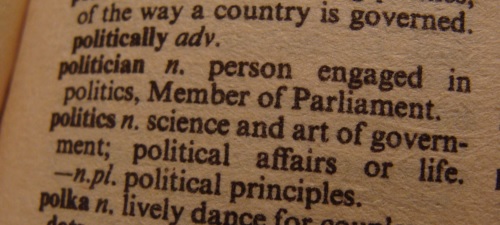 |
| Online and off, free assembly in public spaces is threatened by the liability of private owners, and by surveillance. The Facebook data scandal only makes addressing these threats more pressing. |
That report also criticised the state of affairs where social media companies are not held liable for what is said and done on their platforms. It recommended new measures to hold the companies liable like publishers, based on the interpretation that social media companies don't just provide a platform but shape user experiences.
This section of the report has become all the more important in the light of the work of Carole Cadwalladr, and others at The Guardian and at Channel 4, in uncovering the data harvesting involving Facebook and Cambridge Analytics - and the subsequent use of that data in formulating election 'strategies'.
The questions being raised about the future of social media have no simple answers. Among the complicating factors is that social media fulfils online the role of an open public space where people can freely assemble.
In the physical world, there has been growing concern about the rise of privately owned public spaces - and their possible use not just to ban ball games and the taking of photographs, but also suppress the right to free assembly for public protest.
Allowing the privatisation of public spaces comes with the risk of the public being excluded from them - in turn increasing isolation, that can spur both loneliness and extremism. Now, urban planning has been used in the past to suppress the public, and to suppress dissent.
Louis-Napoleon's remodelling of Paris prevent riotous neighbourhoods from being easily able to construct barricades. Yet, the historical trend has been towards freeing people to peacefully demonstrate.
So how do these issues extend to the digital world?
Firstly, it is important to understand that there has never been a mass use, public owned, digital public square. Online public spaces have been privately owned from the beginning. However, up to the present, they have been free to use and free speech has prevailed under light-touch moderation.
Secondly, the matter of data complicates things. The 'free' use of these privately owned spaces comes with hidden costs in terms of data - complex profiles, mapping specifically you, the user, and your habits. This is not something easily replicated in the physical space.
The Facebook-CA controversy, the harvesting of user data to build complex profiles on citizens, has blown open the question of online spaces and the data they gather - only bringing forward debates that would have to happen eventually anyway.
Paul Mason's response to the Facebook-CA controversy was to suggest three ways forward: Regulation, breakup and nationalisation. Mason argues that, in each major region, Facebook could be broken into several competing platforms - with public ownership of at least some of the 'technical infrastructure' that supports social technology.
The idea is no more radical than public ownership of highways or rail networks, or municipal oversight of local high streets or planning. With democratic oversight, there could at least be a little more hope for a regulatory system that protects a person from exploitation.
For some this will be too much to ask. And yet, offline people have tolerated the rise of the surveillance society in the name of public safety - letting authorities install cameras in public spaces to watch your movements, to track money and correspondence.
Online and off, this surveillance - and the data generates - is being outsourced along with our public spaces. And even the invasiveness of surveillance isn't comparable to what can be harvested online.
This matters, because privacy is about far more than what it is often reduced to: getting away with wrongdoing. Privacy is about defending yourself from coercion and manipulation by powerful bodies - governmental and private, and even peer pressure.
And, we are discovering, privacy also guards a commodity you possess that may ultimately be more valuable than your labour: data.
In essence, this is not just about invasion of privacy but also theft of property. We are learning that everything we know about how people live is crucial data, not just economically, but for the development of all next generation technology and decision-making.
That is so much for the economic questions - for how we adequately protect the right's of citizens to consent, and to ensure their power over, what they posses that is of economic value to the community.
But what are the consequences for free speech and free assembly? What will be the fall out of demanding the owners of privately owned digital public spaces, like social media, become liable for what is said there?
As it stands online public spaces are subject to the same government regulation as offline - and this has already been seen in a number of cases involving things said on social media platforms. So regulation and enforcement of behaviour does exist.
What is it that we are asking private companies to do in terms of becoming liable? How are they going to enforce the law online? Offline, private companies running public spaces and it is not clear that not enough has been done to ensure that public liberties remain free from infringements.
The next steps must be careful. People must have control over their data, of such huge economic and technological value. People must be free to assemble, to talk and to protest. But both of these be balanced with safety.
People's data must be secure. People must be protected from harassment and abuses of free speech. The next steps must be cautious, with responsibility as the byword.













